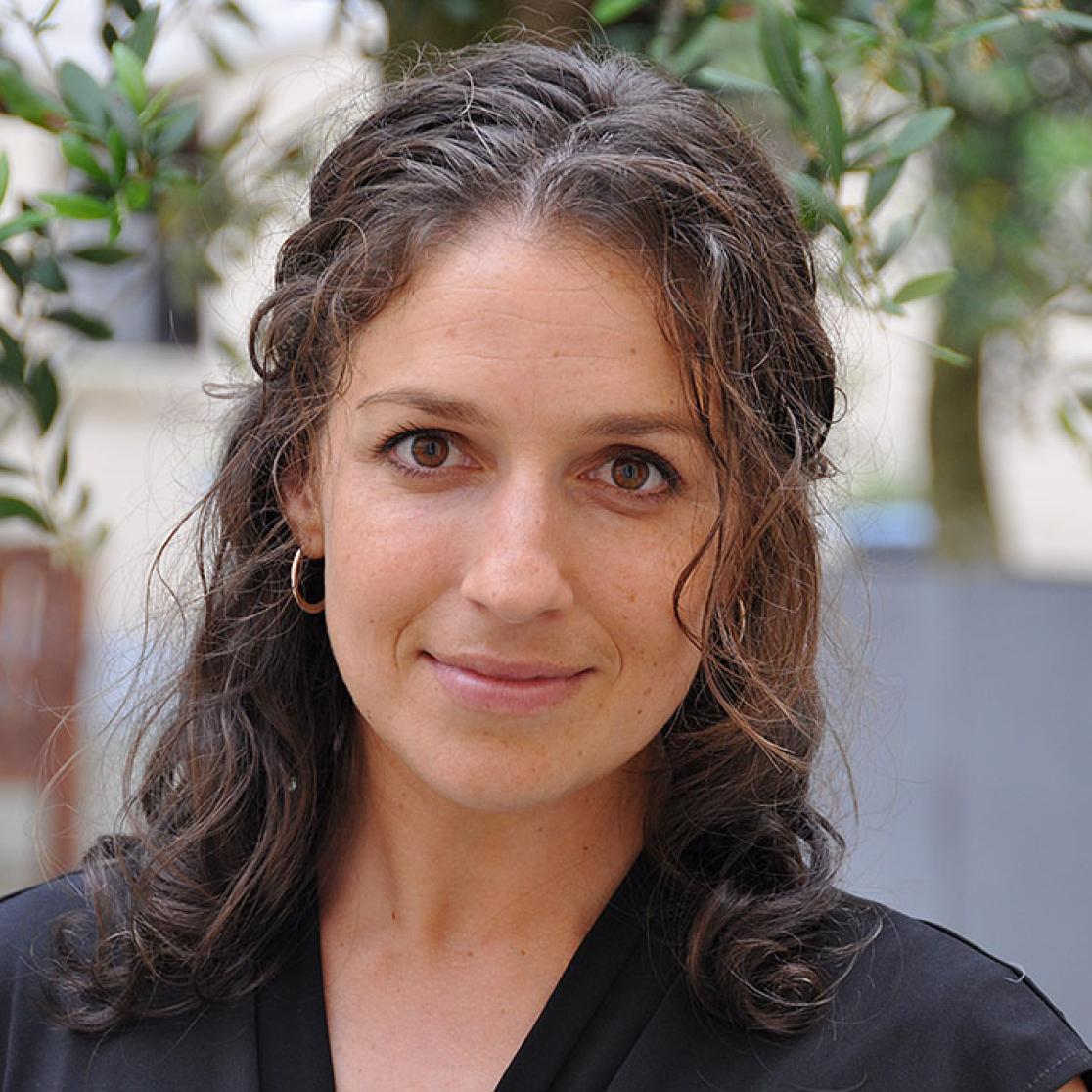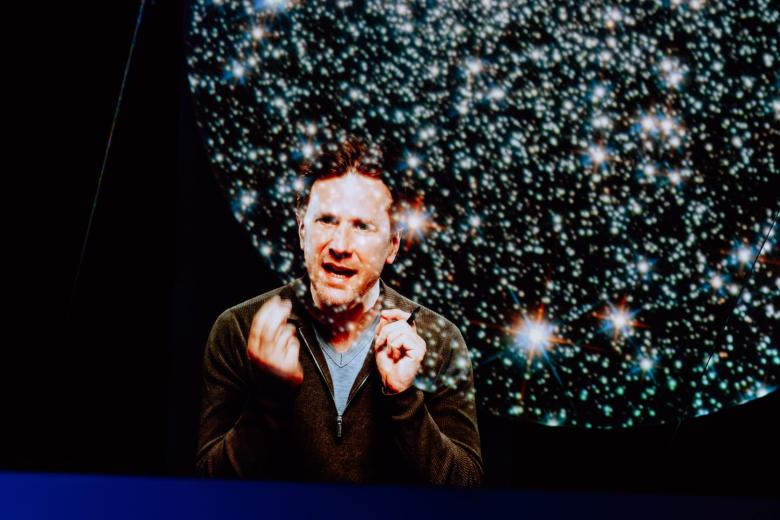Searching for facts about migration
These days, the word ‘migration’ makes many people think of the ‘refugee crisis’. But migrants come in many shapes and sizes, and the phenomenon is as old as mankind. Melissa Siegel studies many aspects of migration at Maastricht University, with the aim of migration and refugee policy that is based on facts, rather than gut feelings. 18 December marks UN’s International Migrants Day – an opportune time to highlight her research.
To begin, Melissa Siegel wants to make something clear. The American-born researcher came to Utrecht for a master’s programme, then to Maastricht for a PhD and was given the opportunity to build a research group here that has about thirty employees, which to a large extent conduct research on migration. “I’m also a migrant. But I'm probably not the kind of migrant that the average Dutch person thinks of. By which, I mean that migrants come in all shapes and sizes. Many people seem to forget that. These days, they only think of the ‘refugee crisis’ and people fleeing Syria. But in my eyes the only ‘crisis’ being played out is on the European political stage. There are 500 million people living in Europe; I see no reason why Europe shouldn’t incorporate all refugees, especially if they’re distributed fairly. Actually, we need these people in the aging West. If we give them the opportunity to integrate and build a new life, that’s the most beneficial for all parties.”
Rwandan refugee camps
And here is where her research in Rwanda comes into play. Commissioned by the international organisation UNHCR, she is currently examining the effects of Congolese refugee camps on the Rwandan society. “The 60,000 refugees live there in camps, but they can also work. You see that they often start their own businesses and are of service to their environment. We not only look at the situation in the camps, but also in the villages within a radius of 10 and then of 25 kilometres. What impact does a camp like this have on social and economic aspects? We examine this by conducting hundreds of surveys and in-depth interviews with community leaders, for instance. The analyses of our data are not there yet, but it appears from the preliminary results that the refugees are fairly well integrated. We already know from other research that the ability to work, to build a new life, is very important for a positive integration experience. And, of course, it helps that Congolese refugees are ethnically more similar to the Rwandans that receive them than the Syrians are here with Dutch. But still…"
Marginalised population
“The Dutch government, and many other Western governments at this time, don’t want to let the refugees to integrate that way, ‘because then we can no longer send them back’. From scientific research, we already know that this is a naive, incorrect assumption. It’s exactly what happened to the migrant workers. For a number of years, the Netherlands actively prevented the migrants from integrating, so that they would someday return to their homeland. Some did, but not everyone. This way you create a population that remains, but is marginalised and contributes little to society. We must not see migrants as people we’d like to see leave quickly. See them like the US and Canada: as future citizens who wish to contribute something to our society.” According to Siegel, it is a misconception that the economy has a fixed number of jobs. “If I have a job, that doesn’t mean you can’t also have a job. If there are more people, the economy can grow. If I have a deli, my clientele will grow as more people move to my city, so I’ll have to hire people. Migrants are going to buy your services; they’re going to pay taxes in your country.”
Government advice
Siegel is often asked by governments, including the Dutch government, to advise on refugee policy, but often her advice is disregarded. “Because the facts about what you need to do to achieve the best possible outcome with these new residents doesn’t fit with the gut feeling in today's society. Migration policy is currently fueled more by feelings than by facts.”
It’s influenced by how people see things, as another research project shows. Many young parents from Moldova go abroad to work for a number of years and leave their children behind with their families. That is seen by the society and the media there as ‘sad’; it would be bad for the children. Melissa Siegel’s team did research on this, through representative surveys and other methods, and it didn’t appear that the ‘children left behind’ were worse off than others. Sometimes they were even better off financially. “That comes through the natural selection of those who decide to migrate. A parent who doesn’t have a good safety net for their children is not going to leave. So it’s important that we examine the assumptions that policy or rhetoric are based on.”
Research focus
Her research focuses on the relationship between migration and health, or migration and entrepreneurship, or corruption, among other things. The question of how countries can attract the most highly skilled migrants also has her attention and she advises governments on this. In addition to research commissioned by international organisations or governments, she tries to find time and money for her own research questions. “So I study, for instance, whether Afghan women who have a family member who migrated to Iran or to another more Westernised country, have better knowledge of modern contraceptive methods and also use them more. And that seems to be the case.” In addition, she teaches students and doctoral candidates as well as policy makers in this area. “If I can help people understand a certain phenomenon a little better, it makes my day. Migration will never stop. It didn’t start two years ago with Syria and even forty years ago with the migrant workers. It will always be relevant and will always raise various new research questions. That makes it interesting. And for this migrant, Maastricht is currently the best place to do research.”
Also visit the MACAMIDE institute and the Migration and Development Research Group
Dr. Melissa Siegel (1981) is a lecturer and researcher at the Maastricht Graduate School of Governance (MGSoG) and senior researcher at the Maastricht University affiliated institute UNU-MERIT, a research and training institute of the United Nations University. She leads the Migration and Development research group of these two organisations. In September 2003, she came from the US to Utrecht University for the master’s programme in Law and Economics. In 2005, she began her doctoral research in Maastricht, which in 2010 led to her thesis ‘Money and Mobility: Migration and Remittances’. She often works on behalf of international organisations such as UNICEF, UNHCR, the EU, the World Bank, the International Organization for Migration (IOM) and various national governments.
By Femke Kools

Also read
-
In Kerkrade, you can listen to the invisible universe
UM and Discovery Museum in Kerkrade make the Einstein Telescope understandable for everyone.
-
Maastricht University ranked #3 worldwide and #1 in Europe in 2025 Better World MBA Ranking
We are incredibly proud to share that the MBA programmes of Maastricht University School of Business and Economics’ executive branches, MSM and UMIO, have once again been recognised among the very best sustainable business MBA programmes worldwide. In the 2025 Better World MBA Ranking by Corporate...
-
